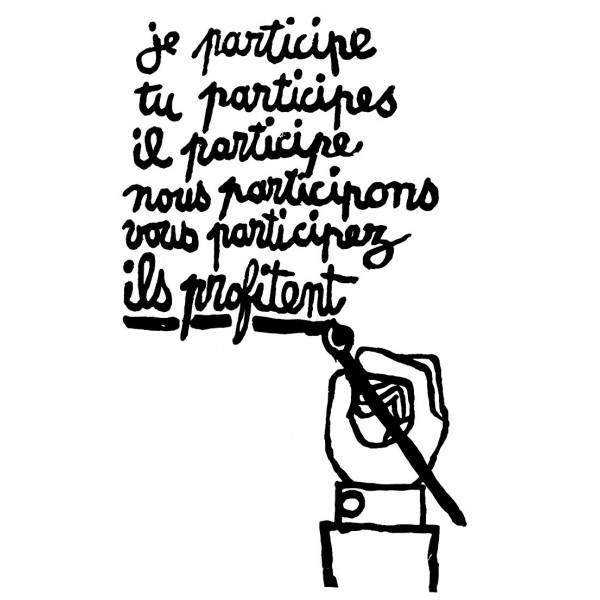What follows is a talk I gave at the University of Washington this past weekend on my working paper “Smiling Faces Tell Lies: Pessimism, Originalism, and Capitalism in the Jurisprudence of Clarence Thomas.” The paper is still incomplete. I only managed to write about Thomas’s theories of racism and how they intersect with his philosophy of constitutional interpretation. In the coming months, I intend to expand the paper to talk about Thomas’s views on capitalism, and how they inform his jurisprudence about the Commerce Clause, the Takings Clause, and more. Ultimately, this paper will be published by the University of Chicago Press in a volume on African-American political thought, edited by Melvin Rogers and Jack Turner. Other contributors will include: Cedric Johnson on Huey Newton, Nikhil Singh on Malcolm X, Lawrie Balfour on Toni Morrison, Michael Dawson on Marcus Garvey, Naomi Murakawa on Ida B. Wells, Jason Frank on Langston Hughes, Tommie Shelby on Richard Wright, Danielle Allen on Ralph Ellison, and many many more. It’s going to be fantastic. But until then, here’s my talk on Clarence Thomas. If you’d like a copy of the paper, email me at corey.robin@gmail.com.
• • • • •Â
Yesterday, Nikhil Singh said that more than any other figure in the African American canon, Malcolm X is someone who everyone thinks they know. Clarence Thomas, I’ve discovered in the past six months, is also a figure who everyone thinks they know. In the interest of dispelling that expectation, which many of you may share, I’d like to present five facts about Clarence Thomas that perhaps you didn’t know.
- The first time Clarence Thomas went to Washington, DC, it was to protest the Vietnam War. The last time that Clarence Thomas attended a protest, as far as I can tell, it was to free Bobby Seale and Erikah Huggins.
- Clarence Thomas does not believe in color-blindness: “I don’t think this society has ever been color-blind,” he said in 1985, in the third year of his tenure as head of the EEOC. “I grew up in Savannah, Georgia under segregation. It wasn’t color-blind and America is not color-blind today…Code words like ‘color-blind’ aren’t all that useful.” Or, as he told Juan Williams in 1987, “there is nothing you can do to get past black skin. I don’t care how educated you are, how good you are—you’ll never have the same contacts or opportunities, you’ll never be seen as equal to whites.”
- When Clarence Thomas was in college he memorized the speeches of Malcolm X; two decades later, he could still recite them by heart. “I’ve been very partial to Malcolm X,” he told a libertarian magazine in 1987. “There is a lot of good in what he says.”
- There’s a law review article about Clarence Thomas that’s called “Clarence X?: The Black Nationalist Behind Justice Thomas’s Constitutionalism.”
- Clarence Thomas resents the fact that as a black man he’s not allowed to listen to Carole King.
Now, the truth is that there’s nothing all that surprising about the fact that Clarence Thomas is black and conservative. There’s a long tradition of black conservatism in this country. And from Edmund Burke to Ayn Rand, conservatism always and everywhere has been the work of outsiders, men and women who hail from the peripheries or margins of the national experience.
Nor, in the end, is Clarence Thomas’s early engagement with black radicalism all that surprising. After all, one of the great clichés of the twentieth century is the young left-wing radical graduating to middle-aged conservatism. And as Cedric Johnson, Michael Dawson, and other scholars have reminded us, there’s a deep affinity between conservatism and parts of the Black Power/Black Nationalist tradition.
But here, I think, is what is surprising about Clarence Thomas: First, he’s a Supreme Court justice who has managed in his jurisprudence to incorporate rather than repudiate some of his early commitments to Black Nationalism and Black Power; I think it’s fair to say no other Supreme Court justice has done that. And, second, Thomas is a constitutional originalist, and a rather radical one at that. Unlike any other justice—not Scalia, not Roberts, not Alito—Thomas wants to restore the Constitution to the meaning it had in 1789.
How Thomas has been able to marry an incredibly bleak vision of the black past, a vision rooted in black nationalism, to a document that is not only the fountainhead of that past but is also, on his account, the source of an alternative black future—not, as Thurgood Marshall and other liberal constitutionalists would have it, because it is a “living Constitution,” but precisely because it is dead: that is the basic puzzle of Clarence Thomas and what makes him, I think, more interesting than many of us realized. [click to continue…]

